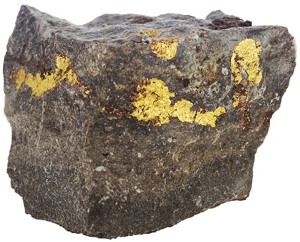Tavex uses cookies to ensure website functionality and improve your user experience. Collecting data from cookies helps us provide the best experience for you, keeps your account secure and allows us to personalise advert content. You can find out more in our cookie policy.
Please select what cookies you allow us to use
Cookies are small files of letters and digits downloaded and saved on your computer or another device (for instance, a mobile phone, a tablet) and saved in your browser while you visit a website. They can be used to track the pages you visit on the website, save the information you enter or remember your preferences such as language settings as long as you’re browsing the website.
| Cookie name | Cookie description | Cookie duration |
|---|---|---|
| tavex_cookie_consent | Stores cookie consent options selected | 60 weeks |
| tavex_customer | Tavex customer ID | 30 days |
| wp-wpml_current_language | Stores selected language | 1 day |
| AWSALB | AWS ALB sticky session cookie | 6 days |
| AWSALBCORS | AWS ALB sticky session cookie | 6 days |
| NO_CACHE | Used to disable page caching | 1 day |
| PHPSESSID | Identifier for PHP session | Session |
| latest_news | Helps to keep notifications relevant by storing the latest news shown | 29 days |
| latest_news_flash | Helps to keep notifications relevant by storing the latest news shown | 29 days |
| tavex_recently_viewed_products | List of recently viewed products | 1 day |
| tavex_compare_amount | Number of items in product comparison view | 1 day |
| Cookie name | Cookie description | Cookie duration |
|---|---|---|
| chart-widget-tab-*-*-* | Remembers last chart options (i.e currency, time period, etc) | 29 days |
| archive_layout | Stores selected product layout on category pages | 1 day |
| Cookie name | Cookie description | Cookie duration |
|---|---|---|
| cartstack.com-* | Used for tracking abandoned shopping carts | 1 year |
| _omappvp | Used by OptinMonster for determining new vs. returning visitors. Expires in 11 years | 11 years |
| _omappvs | Used by OptinMonster for determining when a new visitor becomes a returning visitor | Session |
| om* | Used by OptinMonster to track interactions with campaigns | Persistent |
| Cookie name | Cookie description | Cookie duration |
|---|---|---|
| _ga | Used to distinguish users | 2 years |
| _gid | Used to distinguish users | 24 hours |
| _ga_* | Used to persist session state | 2 years |
| _gac_* | Contains campaign related information | 90 days |
| _gat_gtag_* | Used to throttle request rate | 1 minute |
| _fbc | Facebook advertisement cookie | 2 years |
| _fbp | Facebook cookie for distinguishing unique users | 2 years |
Prospecting for Gold in the UK

This article will look into gold prospecting in the UK. While most people think of gold prospecting as something that only happens in the wilds of California or Australia, you might be surprised to learn that the UK also holds some hidden treasures.
This article will guide you through everything you need to know to start your own gold-hunting adventure.
History of Gold Prospecting in the UK

Gold prospecting in the UK dates back centuries, although it has never reached the scale of other global gold rushes. Some of the earliest known gold finds were during Roman times.
The occasional discoveries throughout history have sparked local excitement
One of the most significant finds occurred in Scotland in the 16th century, leading to a mini gold rush. Since then, sporadic discoveries have continued to keep prospectors intrigued.
Early Discoveries and Historic Gold Rushes
While the UK has never had a “gold rush” to rival California (United States) or Australia, there have been small-scale events that brought gold fever to regions like Wales and Scotland. In particular, the Dolgellau gold belt in Wales produced significant amounts of gold during the 19th and early 20th centuries.
Read more on the infamous Klondike Gold Rush here.
Key Locations of Historical Gold Finds
Notable gold finds have been scattered across the UK, with places such as Tyndrum in Scotland and Snowdonia in Wales often considered hotspots. These historical locations are still viable spots for prospectors today.
Where to Find Gold in the UK

The UK may not be a top global producer of gold, but it has its share of gold-bearing areas. Below are some of the regions where prospectors are most likely to find gold.
1) Scotland
Scotland is a prime destination for gold prospecting
The Leadhills and Wanlockhead areas are well known for their gold deposits. Tyndrum, in particular, has long been considered one of the best areas for gold panning, with reports of gold being found in its rivers.
2) Wales
Wales, specifically in the Dolgellau gold belt, has a rich history of gold mining. The area around Snowdonia has produced significant quantities of gold, and panning in the rivers and streams here can still yield small amounts today.
3) England
In England, you might try your luck in Cornwall, which has a long history of mining. The River Swale in Yorkshire is also worth investigating, with occasional reports of alluvial gold.
4) Northern Ireland
While not as famous for its gold finds, Northern Ireland has potential, especially in the Sperrin Mountains, where alluvial gold has been discovered.
Types of Gold Found in the UK

Gold found in the UK generally falls into two categories:
Alluvial Gold
This type of gold has been eroded from its original source and washed down rivers and streams. It’s often found in small flakes or nuggets in riverbeds, making panning a viable method of extraction.
Lode Gold
Lode gold, or hard rock gold, is still embedded in its original rock formation. It’s typically harder to extract than alluvial gold and requires more sophisticated equipment.
Tools and Equipment Needed for Gold Prospecting

Starting with the right tools can make all the difference in your success as a prospector. Here’s a list of basic equipment to get you going:
Metal Detectors
A good metal detector can help you find gold nuggets that might be hidden just beneath the surface. Look for one designed specifically for gold prospecting, as they’re more sensitive to small gold particles.
Gold Pans
A trusty gold pan is an essential tool. Simple, effective, and cheap, it’s the traditional method of prospecting and ideal for beginners.
Sluices
Sluicing is another effective method for capturing gold. A sluice box allows you to process larger amounts of gravel and can catch finer particles of gold than panning alone.
Regulations and Permits for Gold Prospecting in the UK
Before heading out to search for gold, it’s important to familiarise yourself with the regulations.
Licensing Requirements
In the UK, you generally don’t need a license to pan for gold on public land
However, some areas may require permission or permits, especially if it’s on private land or designated mining areas. Always check local laws to ensure you’re prospecting legally.
Environmental Considerations
It’s essential to respect the environment while prospecting. Follow the “leave no trace” principle, and avoid disrupting local ecosystems, especially in protected areas.
Best Techniques for Gold Prospecting in the UK
Panning for Gold
Panning is the simplest and most accessible method for finding gold. It requires a keen eye and patience but can be incredibly rewarding.
Metal Detecting
Using a metal detector can help you locate gold in areas where it’s not visible to the naked eye. Many UK prospectors find success with this method, especially in areas that have been previously overlooked.
Sluicing
Sluicing involves running water over a sluice box filled with sediment, allowing the heavier gold particles to settle at the bottom. It’s a more advanced technique but can yield higher amounts of gold.
How to Pan for Gold: Step-by-Step Guide
- Prepare Your Equipment: Get a gold pan, a small shovel, and a classifier to sift through sediment.
- Find a Good Location: Look for rivers or streams with a history of gold finds. The bends of rivers or gravel deposits can be ideal spots.
- Proper Panning Technique: Scoop up sediment and water, swirl the pan to separate heavier gold particles, and carefully pour off lighter material.
Metal Detecting for Gold

Choosing the Right Metal Detector
Look for a detector designed for gold. They’re usually more sensitive to smaller particles and can work in highly mineralised ground.
Not all signals will lead to gold, so learning to distinguish between different types of metals is crucial
Sluicing for Gold
Sluicing is a great method for processing larger amounts of gravel quickly. Here’s how to get started:
- Set Up Your Sluice Box: Find a good spot in the river with a steady flow of water.
- Feed the Sluice: Pour sediment into the sluice box, and let the water flow do the work of separating the heavier particles.
Tips and Tricks for Successful Gold Prospecting
- Timing: Late spring or summer is usually the best time, as water levels are lower.
- Know the Terrain: Pay attention to areas with a history of gold finds, or where the geology suggests potential deposits.
- Work Efficiently: Don’t spend too much time in one spot if you’re not finding anything. Sometimes, it’s all about the hunt!
Challenges of Gold Prospecting in the UK
The UK has a few challenges for gold hunters. The weather can be unpredictable, and competition can be stiff in popular areas. Some gold-rich areas are also difficult to reach.
What to Do After You Find Gold
Once you’ve found gold, it’s time to weigh it and determine its purity
You can either sell your finds through gold buyers or keep them as a unique souvenir of your adventure.
Conclusion
Gold prospecting in the UK is a rewarding and exciting hobby. While you’re not likely to strike it rich in this precious metal, the thrill of the hunt and the beauty of nature make it all worthwhile.
Whether you’re a beginner or a seasoned prospector, there’s something uniquely satisfying about finding even the tiniest flake of gold in the UK’s rivers and streams.

















